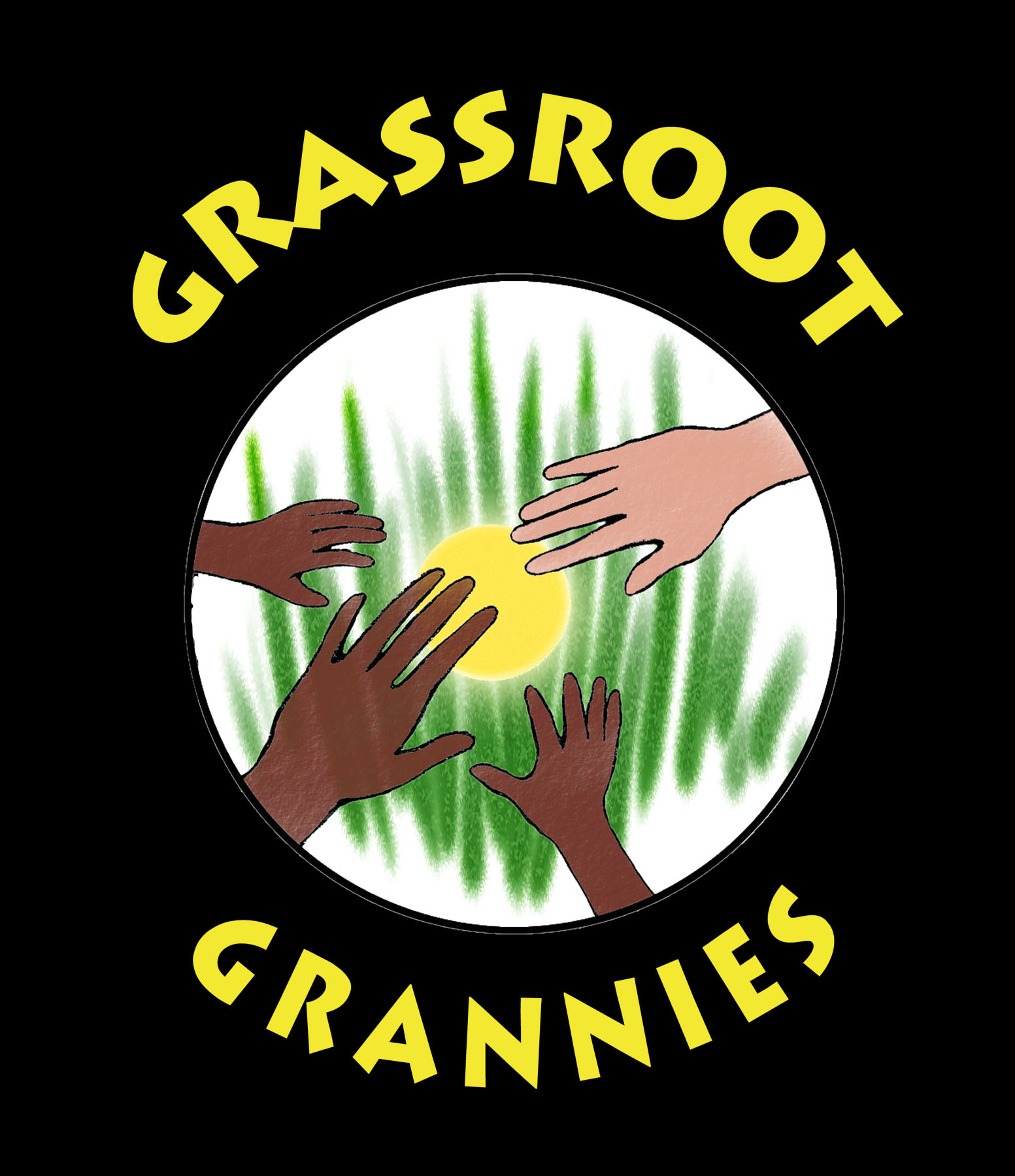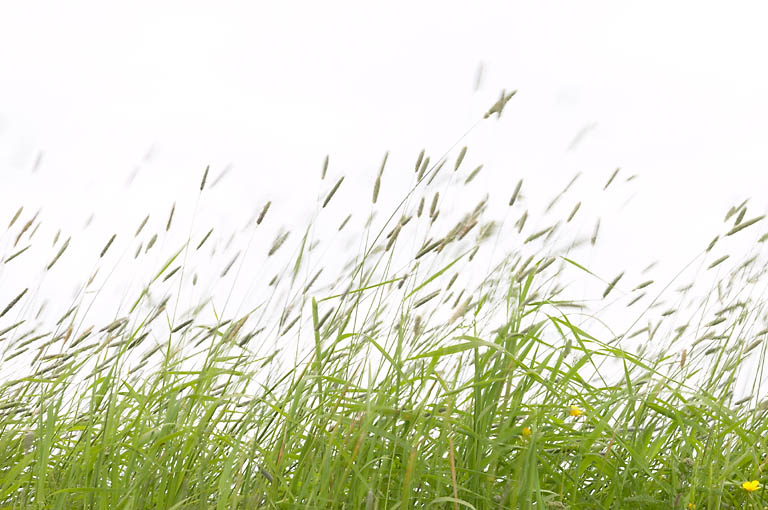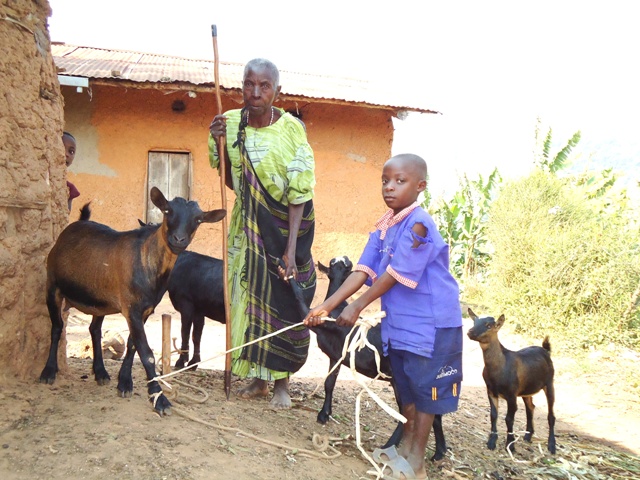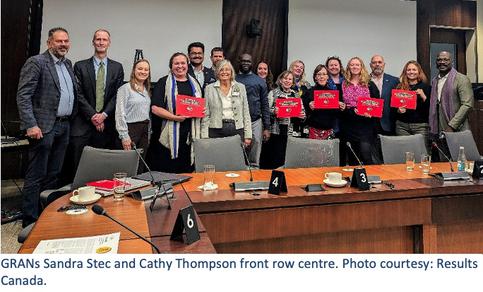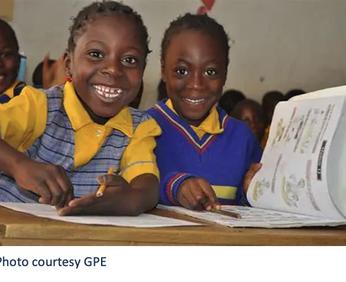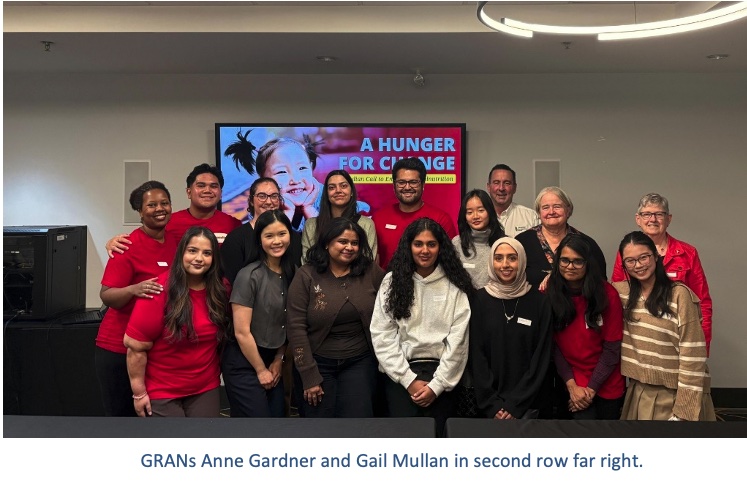Supporting the work of the Grandmothers Advocacy Network (GRAN), the Grassroot Grannies advocate through displays, speaking engagements, media, letter writing campaigns, and participating in organized advocacy events. We have signed petitions, spoken to our MPs and marched on Parliament Hill several times urging our federal government to keep their promises.
On this page of our website, we are now including the GRAN Updates on a quarterly basis.
GRAN Update November 2025
Advocating for grandmothers, vulnerable children and youth in Sub-Saharan Africa
Canadian grannies
supporting
African grannies
GRAN’s WASH Campaign Team Needs Volunteers!
We will be launching our new all-of-GRAN campaign focused on water, sanitation, and hygiene (WASH) in the new year. Throughout 2026, GRANs will be advocating for improved conditions for the 700 million people around the world who lack even basic access to water close to home, and for the 1.5 billion people without a decent toilet, and the 1.7 billion people who lack hygiene facilities – soap, water, the ability to clean themselves, their food, and their environment.1 As you can imagine, access to WASH is strongly affected by the climate crisis. Take a minute to read Water Cannot Wait, a 2-page handout prepared by WaterAid for COP30.
We are delighted that three GRANs have already stepped forward to serve on the campaign team: Sandy Milakovic (ON), Sandra Stec (ON), and Gail Mullan (BC). A sincere thank you to each one! In order to function well, the team still needs two or three more members to step up. Please consider volunteering. We need you. Don’t be too humble or too shy! These small, short-term, task-based teams are a great way to get to know GRANs from other regions and to contribute meaningfully to GRAN’s advocacy work. The campaign team plays a planning and coordination role and will have the full support of the GRAN Steering Committee, Coordinating Team, Watch Groups, and Web Team. There will be lots of help available. Let us know if you’d be willing to join the team by writing us at info@grandmothersadvocacy.org.
Government Reduces International Assistance Envelope
A coalition of over 100 NGOs, including GRAN, led by Cooperation Canada and the Canadian Partnership for Women and Children’s Health (CanWaCH), has issued a statement expressing concern over the government’s decision to reduce Canada’s International Assistance Envelope by 2.7 billion over 4 years. This marks a retreat from our global commitments, and breaks a promise made by PM Mark Carney during the election campaign last April. Click here to read the joint statement.
On September 21st, Sandra Stec and Cathy Thompson attended an HIV/AIDS Legal Network event, Global Health Resilience and Human Rights: Why Canada’s Support for the Global Fund Matters Now, hosted by Parliamentary Secretary to the Minister of Foreign Affairs, Rob Oliphant. During the event Mr. Oliphant affirmed that "The Global Fund is the most important investment we make in global health. It has changed the world." Guest speakers from Ukraine and Côte d’Ivoire highlighted the critical impact of Global Fund programming in fragile and conflict-affected settings. The Global Fund’s Eighth Replenishment Summit will take place on Friday, November 21 in Johannesburg, South Africa.
Health Watch Group
Many thanks to all GRANs who have reached out to their MPs in support of a strong pledge to The Global Fund. (At time of writing, Canada has yet to announce its pledge.)
Education Watch Group
The Education Watch Group is very disappointed that the Canadian government has chosen to reduce Canada’s international assistance. It is not yet possible to determine how these cuts will affect education, particularly funding for the Global Partnership for Education (GPE).
Canada is a longstanding partner of the GPE, having joined the partnership in 2007. To date, Canada has invested more than $675 million in the GPE. Canada’s contributions focus on girls’ education, a core priority for Canada in line with its Feminist International Assistance Policy.
The 5th financing campaign for the GPE, Multiply Possibility, is underway to cover investment in global education for 2026 – 2030. Despite the recent Budget announcement, we hope that Canada will continue to be a strong supporter of the GPE.
It is encouraging that Minister Randeep Sarai, Secretary of State for International Development, said Canada is committed to the concerns of women and children in Africa. “By linking development with inclusive trade and investment, we are helping to build the foundations for long-term prosperity. Canada is working with African partners to advance shared priorities—from education and health, to climate resilience and inclusive economic growth. My visit to Ethiopia and Tanzania and participation in the G20 development ministers’ meeting in South Africa reaffirmed Canada’s commitment to meaningful collaboration and sustainable development that empower communities, especially women and youths, across the continent.” Nevertheless, the EdWG remains concerned.
Mining Justice Watch Group
The Canadian government, mining, and human rights
“You may not know it, but bad things are happening in different parts of the world that have a distinct Canadian connection,” writes Political Science professor, Peter McKenna, in the August 30th, 2025, edition of the Winnipeg Free Press. He describes the human rights abuses and environmental damage around mining sites of Canadian-owned companies in Africa, Latin America, and Southeast Asia. An astonishing number -- over 1,400 -- of the world’s top mining companies are headquartered in Canada where they “enjoy a general immunity from legal liability and accountability for their foreign activities.” Read the full article here.
Double click here to add text.
Voluntary corporate accountability doesn’t work. Canada needs to mandate it.
The federal government is failing to take the necessary steps to hold corporations accountable for human rights and environmental abuses. As Canada advances a new global economic strategy, we must implement measures to ensure that our companies conduct business in line with Canadian values, including respect for human rights and the environment. The Canadian Ombudsperson for Responsible Enterprise (CORE) office – fully staffed and empowered – should be one of these measures.
The Canadian Network on Corporate Accountability has developed model legislation, endorsed by more than 200 organizations including GRAN, from Canada and around the world, which the federal government can use as a blueprint. Although our current government has not made a commitment to ensure the implementation of legislation and the role of CORE, we will continue to advocate for this, along with our partners. Mining Justice Watch Group member and Victoria GRAN, Phyllis Webster, took a step in this direction with a conversation with Victoria MP Will Greaves on November 10th. Allotted a 10-minute phone call, she expressed to him the need for an effective and empowered Canadian Ombudsperson.
Supporting the Xinka People
Members of the Mining Justice Watch Group have closely followed and been inspired by the struggle of the Xinka people of Guatemala over the past seven years as it relates to corporate accountability (or lack thereof) of Canadian mining companies. On November 13th, a petition containing over 6,000 signatures was delivered in Vancouver to the headquarters of mining company Pan American Silver, urging them to respect the Xinka Indigenous people’s clear decision to deny consent to the reopening of the Escobal mine in southeastern Guatemala.
GRANs in action across the country!
The Van Grans:
On November 15th in Surrey BC, GRAN member Anne Gardner participated as a panellist in a workshop sponsored by Results Canada entitled, "A Hunger for Change: A Canadian Call to End Malnutrition". The workshop looked at the role Canada and individual Canadians can play in ending the malnutrition crisis currently threatening the lives of millions of children around the world. Anne spoke about GRAN's recent advocacy on this issue and the tools and strategies we have used to reach out to decision-makers. Results Canada’s Gabe Cassie was MC. Also on the panel: Khadija Rana and Jet Takaoka (Canadian Foodgrains Bank).
GRAN Northumberland:
Members of GRAN Northumberland gave a well-received presentation on Child Hunger at the October meeting of the Trent Valley Area Women’s Institute. The theme of the meeting was Women Sharing - Women Caring - Women Involved.
The 2025 CBC Massey Lectures were delivered this fall by human rights activist and former Secretary General of Amnesty International Canada, Alex Neve. Universal: Renewing Human Rights in a Fractured World is the published collection of these lectures. Neve identifies universality as the core promise of the human rights order which emerged from the devastation of World War II and the Holocaust. These rights are meant to extend to everyone, everywhere, at all times, without exception. But the cruel reality is that we collectively have not kept this promise. Weaving together law, history and stories from decades on the front lines of the struggle for human rights, Neve investigates where we went wrong, how we have progressed, and what we can do to fulfill the promise that human rights are inherent, inalienable, and applicable to all people (House of Anansi Press). Click here to read more and to view a 12-minute CBC interview with Alex Neve. The 2025 CBC Massey Lectures will soon be posted on the CBC Massey Lectures Archives page.
The Massey Lectures
This is our final GRAN Update of 2025. We wish you all a good holiday season with family and friends. See you in 2026!
